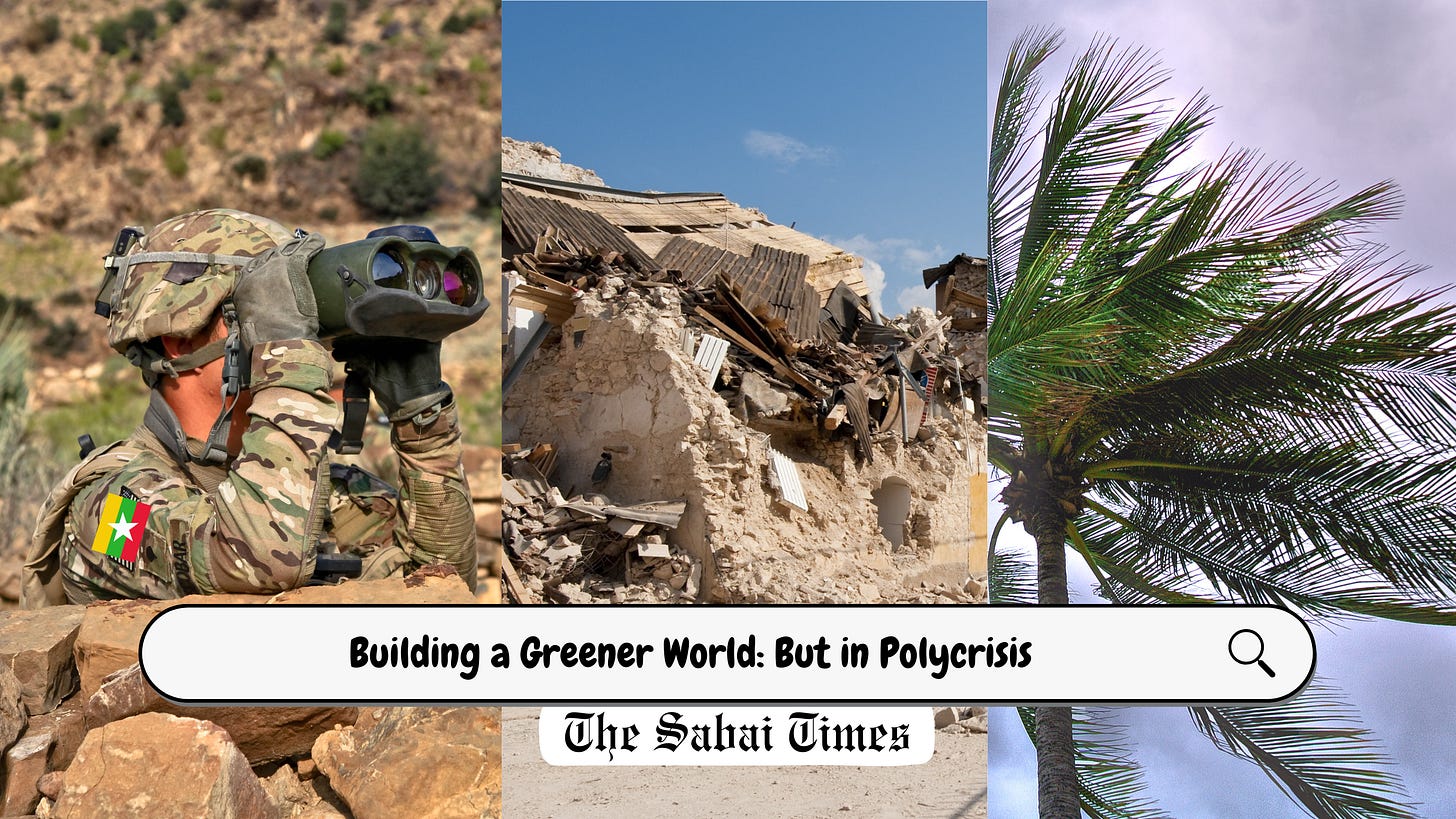Global climate skepticism, unequal climate policies, and Myanmar’s internal crises intersect to challenge the country’s environmental sustainability efforts.
Key Takeaways:
Growing global skepticism around climate change and unequal responsibility among nations hinders effective and fair climate action.
Climate adaptation policies in Myanmar often exacerbate inequality and vulnerability due to misallocation and elite dominance over resources.
Political instability and conflict in Myanmar severely disrupt environmental programs and prevent the implementation of international climate commitments.
Skeptical thoughts on climate change are growing. While the globe is sounding a wake-up call and ensuring no one is left behind, some scientists argue that people overreact to climate change issues. Almost all climate scientists agree that human activities, particularly burning fossil fuels, primarily cause global warming. However, some argue that climate change is also a natural phenomenon. Between the 2019 and 2022 surveys, the percentage of people who do not think that human actions, such as burning fossil fuels, are causing climate change rose from 31% to 37%. The number who ascribe it to human activities fell from 69% to 63%, according to the data from Climate Change: A Growing Skepticism by IPSOS.
Bjørn Lomborg, in False Alarm, argues that the climate policies make people experiencing poverty suffer more. This article will explore how an underdeveloped and war-torn countries like Myanmar address the environmental issues. Because, in some cases, inequality in climate change adaptation interventions intensifies the vulnerability. As elite control over marginalized people’s livelihoods and natural resource management, sustainable solutions create new sources of vulnerability. In some cases, funding was overly distributed to the least-affected regions, while regions with the most severe scarcity received less.
As pointed out by Eriksen, adaptation efforts can increase economic, social, and environmental costs or undermine existing local adaptation strategies: increased irrigation in agriculture may reduce water availability for domestic and other purposes, and some adaptation measures increase workloads and economic costs. Reducing the carbon footprint requires global action and the implementation of the Paris Agreement in all countries. However, developing countries argue that industrialized nations should bear more responsibility since they contributed the most to historical carbon emissions.
The Paris Agreement acknowledges countries' differing responsibilities and capabilities by encouraging inclusive, flexible, and progressive climate action while striving for fairness and equity in combating global warming and balanced emissions reductions between developed and developing countries. However, policies will require people and companies to use less carbon dioxide-emitting technologies and expensive fuels to achieve the promised carbon cuts. In False Alarm, it is said that a 2017 landmark article in Nature puts it bluntly: “All major industrialized countries are failing to meet the pledges they made to cut greenhouse-gas emissions.
Now, scientists and environmentalists are trying to reduce greenhouse gas emissions and adapt by developing strategies to live with and minimize the effects of climate change by performing both proactive and reactive actions and hard and soft adaptation measures. Proactive adaptation interventions are planned for future climate impacts (e.g., building flood defenses). Reactive adaptations occur in response to immediate climate events (e.g., rebuilding after a flood). Complex interventions involve physical infrastructure or technology (e.g., constructing seawalls or developing drought-resistant crops). Soft interventions focus on policies, knowledge, and capacity-building (e.g., public awareness campaigns and training farmers in sustainable practices).
Sometimes, environmental sustainability policies and interventions burden developing countries. While an underdeveloped country like Myanmar emits 0.1% of CO2, developed countries like China and the US emit over 32% and 12 % of the global share, according to the data from World Meter. While people in developed countries are encouraged to take personal responsibility, reducing carbon footprints by using public transport, carpooling, and practicing 5R strategies, surprisingly, only 14% of households in Myanmar own a car. Even in a metropolitan city like Yangon, most rely on public transport. Moreover, people in poor countries like Myanmar always reuse and repair their appliances even if they are broken, and most buy already used things because of their tight financial situation.
Additionally, mitigation of environmental sustainability can also occur, as exemplified by the Myitsone Dam project. Although hydropower is renewable and green energy, other consequences from hydropower dams were considered: flooding the neighboring villages, discharge of accumulated sediment, loss of farmland, and loss of spawning habitat. Migratory fish will swim upstream after the dam's completion. This would lead to lost income for fishermen. Hence, people were against the Myitsone dam project for social, environmental, economic, and cultural concerns.
Moreover, the polycrisis in Myanmar disrupts wildlife conservation programs and protected areas such as Hukaung Valley, one of the world’s richest biodiversity areas. Political conflicts have stalled investments in renewable energy and conservation programs: The Wind Turbine Project in Rakhine state and the solar power plant in Minbu have now stalled. Thereafter, large-scale displacement by the political clashes results in deforestation, soil degradation, and water pollution as refugees build temporary settlements with limited infrastructure (such as forests for firewood or overgrazing by livestock, etc).
To conclude, Myanmar’s current ruling government failed to fulfil the Nationally Determined Contribution (NDC) and the Master Plan (2018-2030). Political instability weakens a country’s ability to retain already-set sustainability policies, contribute to international agreements, and implement carbon sequestration measures. Unsurprisingly, the distinction between SDGs and a nation’s socio-economic vulnerability becomes more polarized in Myanmar.
Emilia Khine is an intern at RecyGlo Myanmar and volunteers in a youth-led non-profit environmental organization, assisting with environmental projects.
“Advocating Sustainability, Shaping Our Future”
The opinions expressed in these articles do not represent the official stance of SRIc - Shwetaungthagathu Reform Initiative Centre. The Sabai Times is committed to publishing a range of perspectives that may not align with editorial policy. Contact: sabaitimes@shwetaungthagathu.com





I agree—developing countries like Myanmar face unique challenges when it comes to climate change. Global policies need to consider inequality and local realities. Great job highlighting these important issues